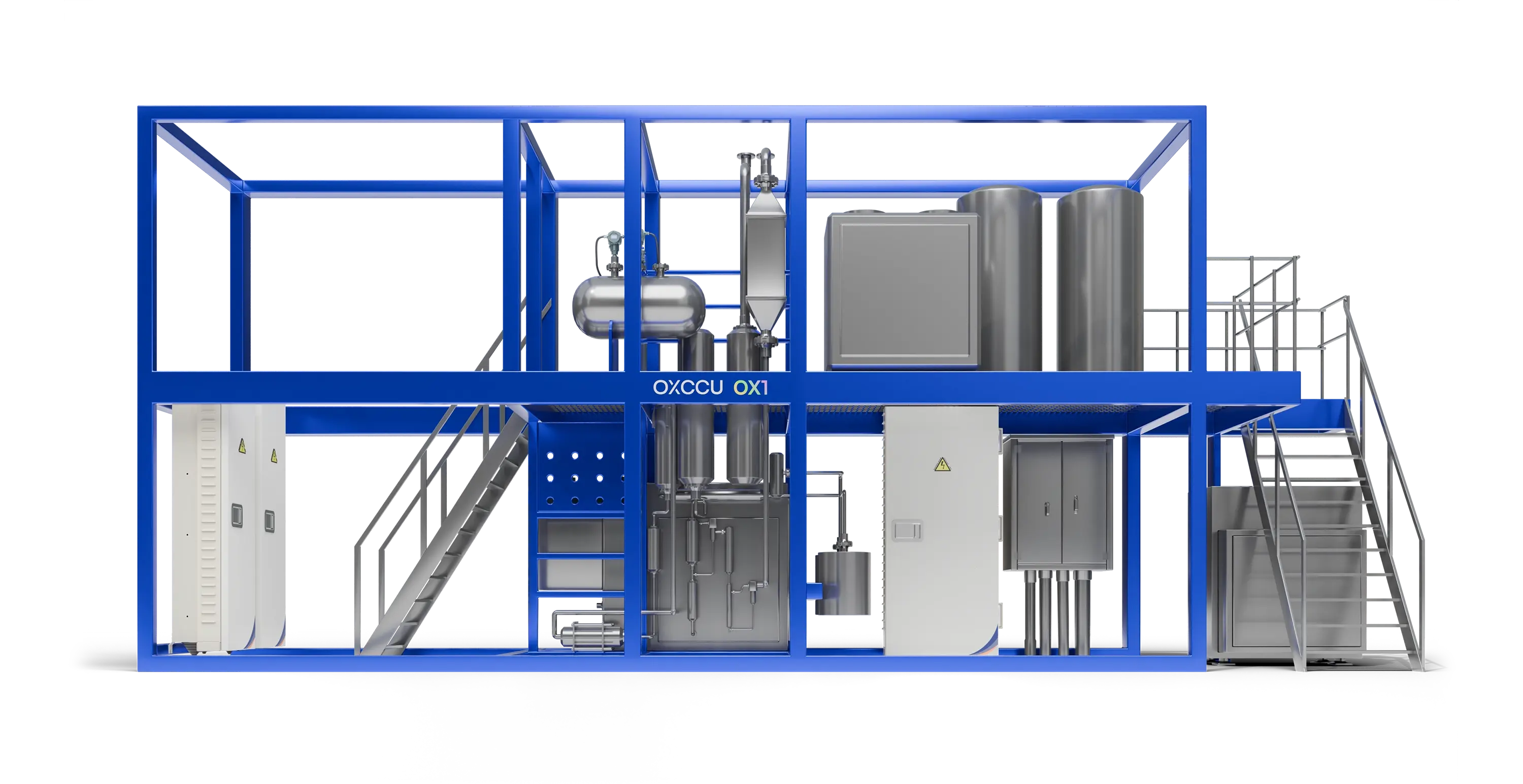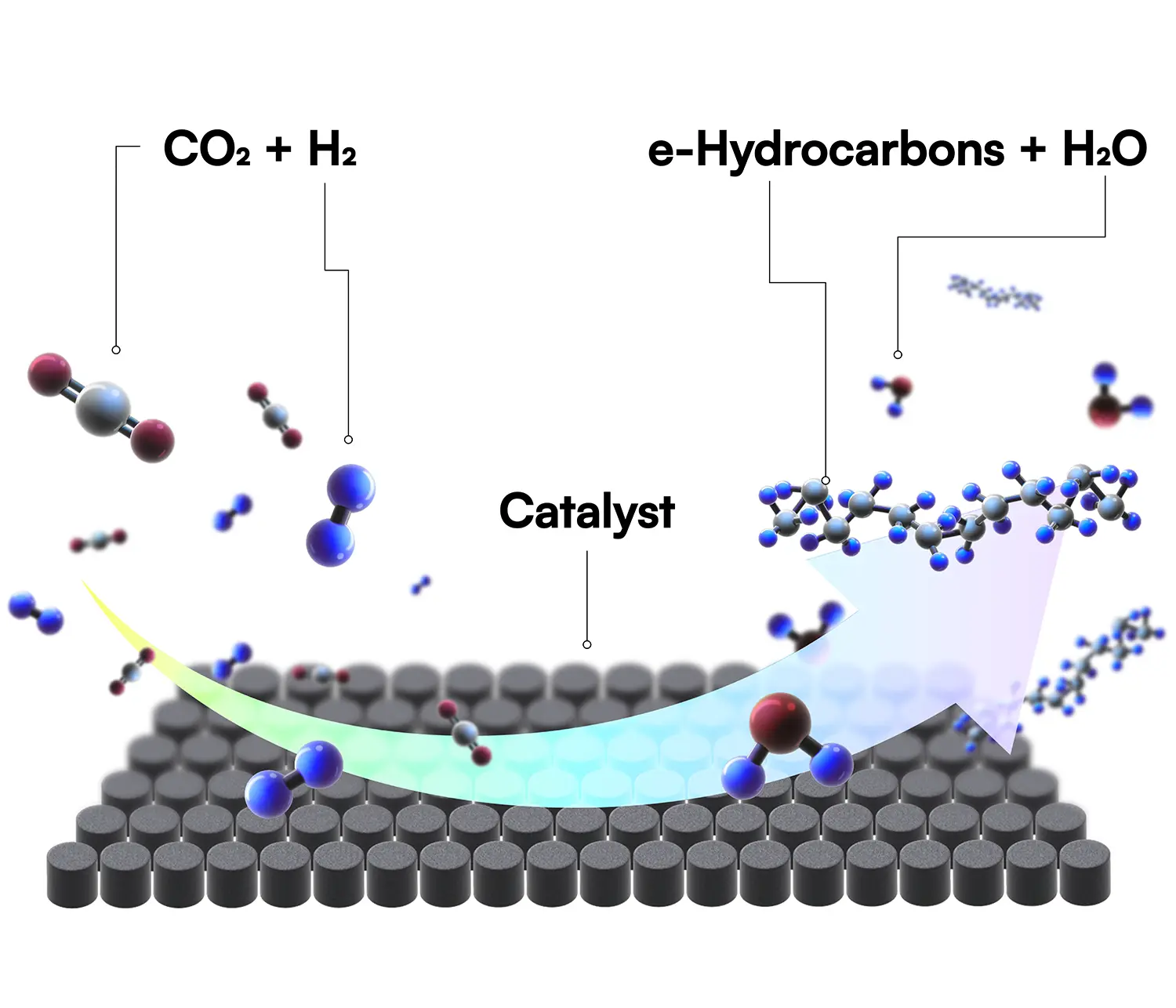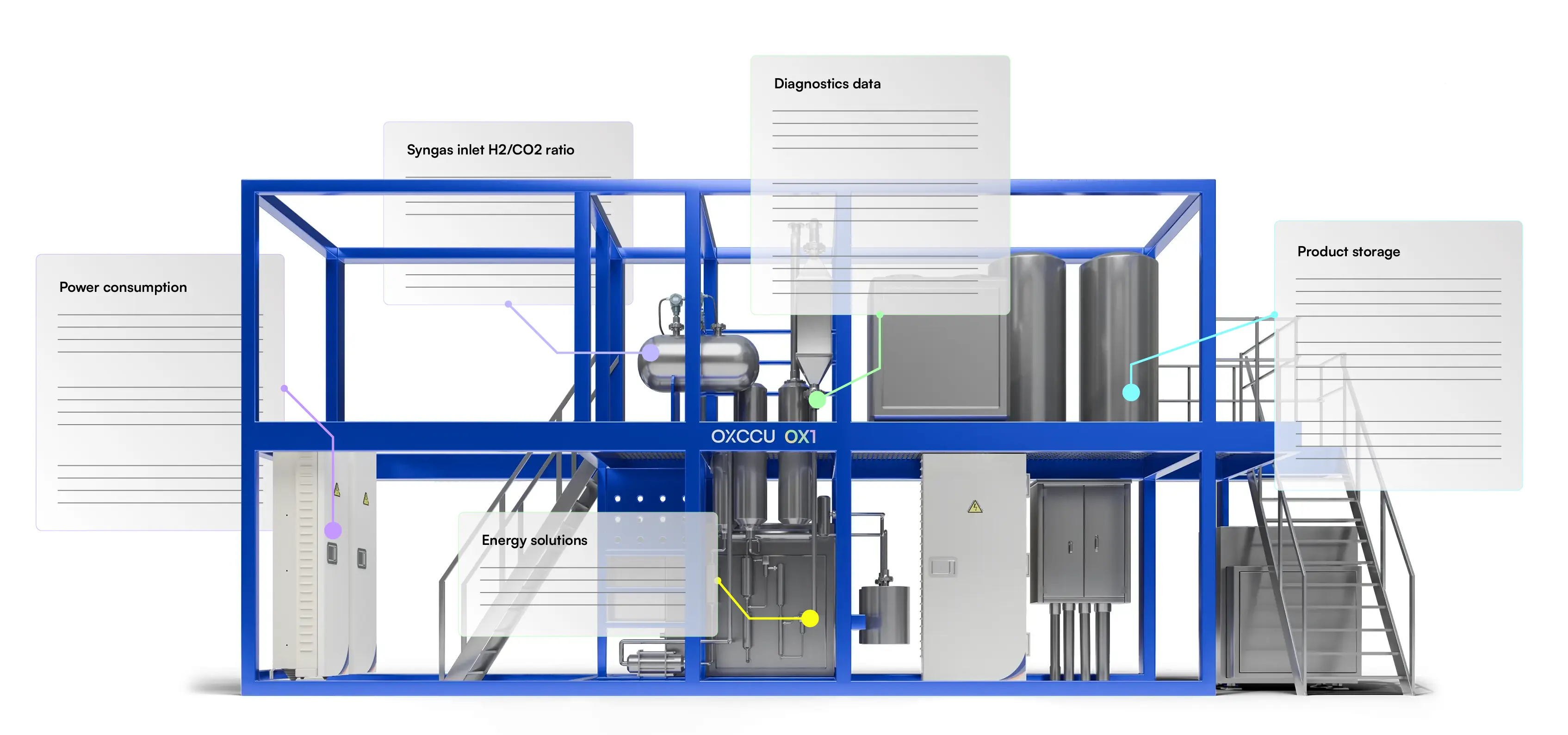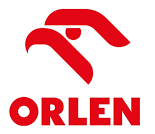Jet fuel from waste carbon
OXCCU’s mission is to develop the world’s lowest cost, lowest emission pathways to make SAF from waste carbon, enabling people to continue to fly and use hydrocarbon products but with a reduced climate impact.
Even in a net zero world,
we will still need hydrocarbons
Due to climate change we can’t keep using fossil fuels, so where will we get these hydrocarbons from?
The solution is to make them from waste carbon
Liquid fuel derived from either waste biomass or carbon dioxide (CO2)
Learn more about the need for hydrocarbons here.webp)
.webp)
At the heart of our process: a CO₂ tolerant F-T catalyst and reactor built to turn the widest range of CO2, CO and H2 compositions into drop-in fuels from multiple carbon sources.

Our Low Cost, Low Emission Processes with OXCCU's CO2-tolerant F-T Technology at the centre
OXPTL™
CO₂ with green H₂.
CO2 sourced from ethanol production, anaerobic digestion, sugar mills, pulp and paper, or a hard to abate point source such as cement. Hydrogen from water and renewable electricity.
OXGTL™
Biomethane with additional CO2.
Biomethane from food waste, agricultural residues, cover crops, CAM plants, sewage sludge, and other residues such as from brewing and distilleries. Option to convert some of the associated biogenic CO2 with our proprietary catalyst in the same F-T reactor.
OXGAS™
Gasified carbon waste with top up green H₂.
Syngas from waste wood, forestry waste, agricultural waste such as straws and organic municipal solid waste. We can work with CO2 in the syngas in addition to the CO and H2 and convert it with our proprietary catalyst all in the same F-T reactor. With additional green H2 all the carbon can be converted to liquid fuels. We can also work directly with industrial gas streams if they contain CO2 and CO, such as from steel, again with top up green H2 if required.
Introducing OX1
Our SAF demonstration plant stationed in Oxford Airport is a next-generation approach to producing clean, sustainable fuels for aviation.

It’s a First of a Kind converting CO2 and H2 into long-chain hydrocarbons through a one-step process, setting a new standard in SAF production.
OXFUEL™ offers a scalable, cost-effective SAF solution with much lower capital and operational costs compared to other pathways.
Based on over a decade of fundamental research at the University of Oxford and supported by industry and government investment.

Our OX1 plant was commissioned in September 2024 and has the capacity to produce 1kg (~1.2 litres) of liquid fuel per day
The plant is the world’s first demonstration of the direct conversion of CO2 and H2 to jet fuel range hydrocarbons in a single step with minimal oxygenated byproducts using OXCCU’s novel catalyst.
Our patented, one-step technology offers a radically cost-effective solution, converting CO2 and H2 directly into jet fuel range hydrocarbons.
OXCCU's technology consolidates the traditional production process from a two-step Reverse Water Gas Shift (RWGS) and Fischer Tropsch (F-T) reaction to a one-step catalytic conversion.
Learn more about our proprietary technology

Our services now include light engineering packages
Leverage operational data from our OX1 plant to de-risk your pathway to efficient, low-capex sustainable fuels.
Learn more about our servicesFeedstock flexibility
Our mission is to transform waste carbon into scalable fuels and chemicals, using flexible inputs and a simplified catalytic process to cut cost, emissions, and complexity.



Our catalyst system has leading conversion and selectivity, enabling cost effective fuel production from a range of waste feedstocks
Our technology has the flexibility to work with CO2 and H2, mixtures of CO2, CO and H2 (CO2 rich syngas) as well as pure CO and H2 (syngas). This ability to work with the broadest range of different syngas compositions with or without CO2 means we also have advantages in biogas to SAF (GtL) and gasification to SAF as well as in PtL.
The focus is always the same, reducing both cost and carbon intensity.
Our products

Long-distance fuels
Where energy density requirements are far beyond batteries

Petrochemical products
Where carbon forms the backbone of household products

Biodegradable plastic
Products which enable the continued use of the material
We are proud to be affiliated with the following institutions, programmes and funders











Towards a world of carbon-neutral flights, chemicals and plastics
At OXCCU, we are at the forefront of scientific advancement, shaping the future of sustainable energy production.
The company was spun out from the University of Oxford in 2021 by co-founders Andrew Symes and Jane Jin, and is underpinned by scientific breakthroughs published in top-tier scientific journals by the academic founders, Professor Peter Edwards, Dr Tiancun Xiao and Dr Benzhen Yao.
Key findings from third party technoeconomic modelling showed:
Interested in finding out more about OXCCU and our technologies?





-01.svg)
.webp)
.webp)